
PHILADELPHIA — Senator Barack Obama found himself consistently on the defensive as he and Senator Hillary Rodham Clinton met Wednesday night in a tense debate that left him parrying questions and criticism on issues including values, patriotism and his association with onetime radicals from the 1960s.
It was the first time the two candidates had shared a debate stage in seven weeks, and it came six days before a primary in Pennsylvania that could determine whether Mrs. Clinton can continue her quest for the Democratic presidential nomination. It could also prove to be the last debate between them.
Accordingly, Mrs. Clinton did not let an opportunity pass as she repeatedly challenged Mr. Obama on his record and views — assisted, as it turned out, by vigorous questioning by the two moderators from ABC News, Charles Gibson and George Stephanopolous.
The result was arguably one of Mr. Obama’s weakest debate performances. He at times appeared annoyed as he sought to answer questions about his former pastor, his reluctance to wear an American flag pin on his lapel and his association in Chicago with former members of the Weather Underground, a radical group that carried out bombings in the 1960s that were intended to incite the overthrow of the government.
With a few exceptions — one being when he recalled Mrs. Clinton’s dismissive statement in 1992 about not wanting to spend her life at home baking cookies, an attempt to counter her attacks on his recent statements about religion and small-town values — Mr. Obama chose not to go after his rival aggressively, even when he was asked whether voters considered her honest.
The political implications of his performance remained unclear. As Mrs. Clinton was again reminded by a poll Wednesday in The Washington Post, there are risks to going on the attack as she has over the past six weeks: She is viewed unfavorably by an increasingly large number of voters. Mrs. Clinton can afford nothing short of a strong victory in Pennsylvania’s primary on Tuesday as she looks for a rationale to proceed with her candidacy and stir doubts about Mr. Obama’s ability to appeal to white, blue-collar voters.
But Mrs. Clinton’s audience in attacking Mr. Obama and his electability was not just voters here, but also the unaligned Democratic superdelegates — elected officials and party leaders — whose choices are going to determine who wins the nomination. That was particularly clear when Mrs. Clinton and Mr. Obama tangled over his statement at a California fund-raiser that many small-town voters who are bitter over their economic circumstances “cling to guns or religion or antipathy to people who aren’t like them.”
Mr. Obama said that he had misspoken and that he understood why voters would be offended by those remarks. But he accused Mrs. Clinton of seeking to parse his words for political gain in a way that he said accounted for widespread cynicism about politics.
“So the problem that we have in our politics, which is fairly typical, is that you take one person’s statement, if it’s not properly phrased, and you just beat it to death,” he said. “And that’s what Senator Clinton’s been doing over the last four days.”
“She has gone through this,” he said. “You know, I recall when back in 1992, when she made a statement about how, ‘what do you expect, should I be at home baking cookies?’ And people attacked her for being elitist and this and that. And I remember watching that on TV and saying, well, that’s not who she is; that’s not what she believes; that’s not what she meant. And I’m sure that that’s how she felt as well.”
But Mrs. Clinton tersely rejected Mr. Obama’s explanation. “I can see why people would be taken aback and offended by the remarks,” Mrs. Clinton said, adding, “It wasn’t just me responding to them, it was people who heard them, people who felt as though they were aimed at their values, their quality of life, the decisions that they have made.”
Mrs. Clinton appeared, for the most part, calm and in control, particularly when the discussion moved to such questions as how the two candidates would respond to an attack by Iran on Israel and whether they would promise not to raise taxes as president. Both Mrs. Clinton and Mr. Obama said they would not raise taxes on middle class Americans — those making less than $200,000 to $250,000 a year — though Mr. Obama, pressed by a questioner, acknowledged that he had said he was open to making more income below that threshold subject to the Social Security payroll tax. They also had differences on the capital gains tax; Mrs. Clinton said that if she were to raise it from its current 15 percent level, it would not be to above 20 percent, while Mr. Obama said he would consider raising it as high as 28 percent.
While the tone remained civil on the surface, the displays of affection that both had engaged in during some of their previous encounters — back slaps and lingering handshakes — were replaced by shots of the two candidates staring tensely at each other or gazing into the darkened auditorium at The National Constitution Center.
There was a brief moment of lightness at the start when Mr. Gibson asked whether either would endorse a proposal by Mario M. Cuomo, the former governor of New York, to promise that whoever wins the nomination choose the other as his or her running mate, and that the loser would accept. “So I put the question to both of you: Why not?”
The lengthening silence from the two candidates was filled by the laughter of the crowd.
On issue after issue, Mrs. Clinton raised stern questions about Mr. Obama’s electability.
“I have a lot of baggage, and everybody has rummaged through it for years,” Mrs. Clinton said, drawing laughter. “And so therefore, I have, you know, an opportunity to come to this campaign with a very strong conviction and feeling that I will be able to withstand whatever the Republican sends our way.”
It took two answers — and a nudging from Mr. Stephanopoulos — before Mrs. Clinton answered whether she believed Mr. Obama could win.
“Yes, yes, yes,” she replied, quickly adding, “I think I am better able and better prepared.”
At several points during the debate, the candidates were shown videotaped questions from voters in Pennsylvania. A woman from Latrobe, identified as Nash McCabe, pointedly asked Mr. Obama about his patriotism, saying: “I want to know if you believe in the American flag.”
“I revere the American flag,” said Mr. Obama, who does not regularly wear a flag lapel pin. “And I would not be running for president if I did not revere this country.”
But throughout the 90-minute debate, Mr. Obama was placed on the defensive, explaining his association with his former pastor, the Rev. Jeremiah A. Wright Jr., as well as his connection to Bill Ayers, a Chicago supporter who was a member of the Weatherman Underground and is now a professor at the University of Illinois at Chicago.
Those issues were raised in a tough round of questions posed by Mr. Stephanopoulos and Mr. Gibson, who in many ways presented a mirror image of earlier debates in which two NBC moderators, Tim Russert and Brian Williams, repeatedly pressed Mrs. Clinton with tough and provocative questions.
But if the moderators put Mr. Obama on the defensive, Mrs. Clinton pressed her advantage at every opportunity, at one point invoking the name of Louis Farrakhan, the National of Islam leader, who has endorsed Mr. Obama.
“This is a legitimate area,” she said, “as everything is when we run for office.”
Mrs. Clinton seemed well prepared to push the question of Mr. Ayers, citing details of Mr. Obama’s association with him as a fellow board member for the Woods Fund of Chicago. Mr. Obama, equally well prepared, responded by noting that Bill Clinton had, as president, pardoned the sentences of two other members of the Weather Underground.
“By Senator Clinton’s own vetting standards, I don’t think she would make it, since President Clinton pardoned or commuted the sentences of two members of the Weather Underground, which I think is a slightly more significant act than me serving on a board with somebody for actions he did 40 years ago,” he said.
After Mr. Obama made his remark at the California fund-raiser about the traditions of people who own guns, Mrs. Clinton told audiences at campaign stops that her father showed her how to shoot as a young girl. The issue, one that most Democrats have not found comfortable terrain, came up again at the debate, with Mr. Obama suggesting that he understood the issue to be almost one of family values.
“You know, when you listen to people who have hunted, and they talk about the fact that they went hunting with their fathers or their mothers, then that is something that is deeply important to them and, culturally, they care about deeply,” he said.
And Mrs. Clinton and Mr. Obama said that as president, they would execute promises to begin the withdrawal of American troops from Iraq, even if their military commanders at the time advised them that it would be wiser to keep troops on the ground.
By ADAM NAGOURNEY and JEFF ZELENY
The New York Times
http://www.nytimes.com/2008/04/17/us/politics/17debate.html?th&emc=th
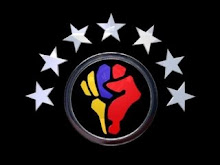



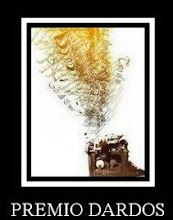











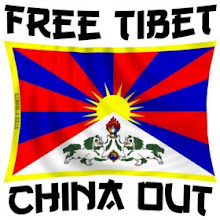










.jpg)


















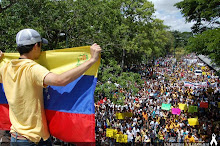





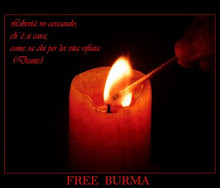

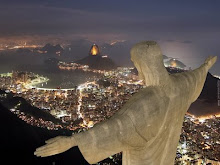




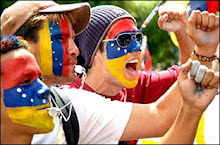

















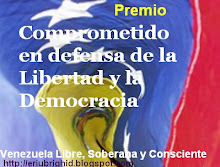


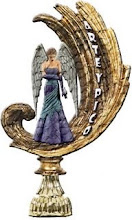












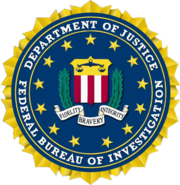



















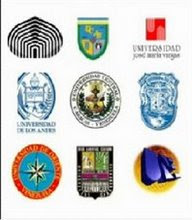


No hay comentarios:
Publicar un comentario